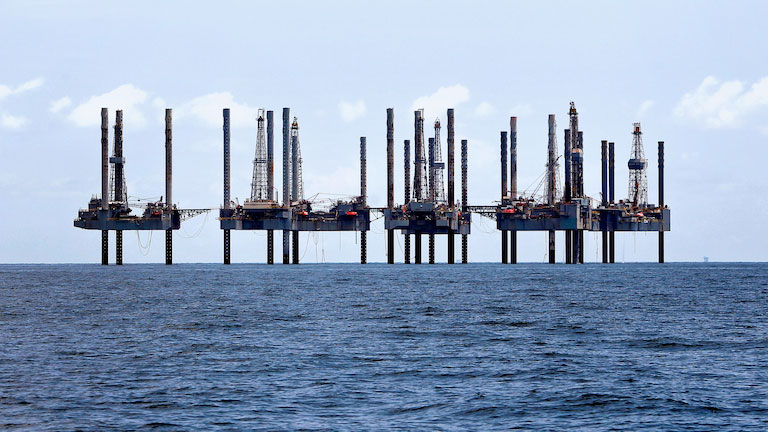Moratorium, Jobs, and Oil Revenue

In late May, after a 30-day interagency examination of deepwater drilling operations, Secretary of the Interior Ken Salazar directed the Minerals Management Service (MMS) to issue a six-month moratorium on all drilling at a water depth of more than 500 feet in the Gulf of Mexico and the Pacific Ocean. The moratorium took effect on May 30 and halted work on 33 offshore deepwater rigs in the Gulf.
The oil and gas industry, local communities, and elected officials from the region immediately criticized the action. Senator Mary Landrieu of Louisiana testified before this Commission in July that the moratorium was "unnecessary, ill-conceived and has actually created a second economic disaster for the Gulf Coast that has the potential to become greater than the first." On July 30, BP established a $100 million charitable fund to assist rig workers experiencing economic hardship because of the moratorium.
The federal government concluded that the moratorium's impact would be less severe. On September 16, a federal interagency report stated that the moratorium "may temporarily result in up to 8,000 to 12,000 fewer jobs in the Gulf Coast," with these losses attributed mostly to small businesses. Louisiana elected officials criticized the report's methodology and the decision to conduct this analysis after, instead of before, the moratorium began.
On September 30, a few weeks before lifting the moratorium, the Interior Department promulgated new regulations on topics such as well casing and cementing, blowout preventers, safety certification, emergency response, and worker training. Compliance with the new rules is a prerequisite for both shallow and deepwater drilling permits. Some companies called these new requirements a “de facto moratorium.”
